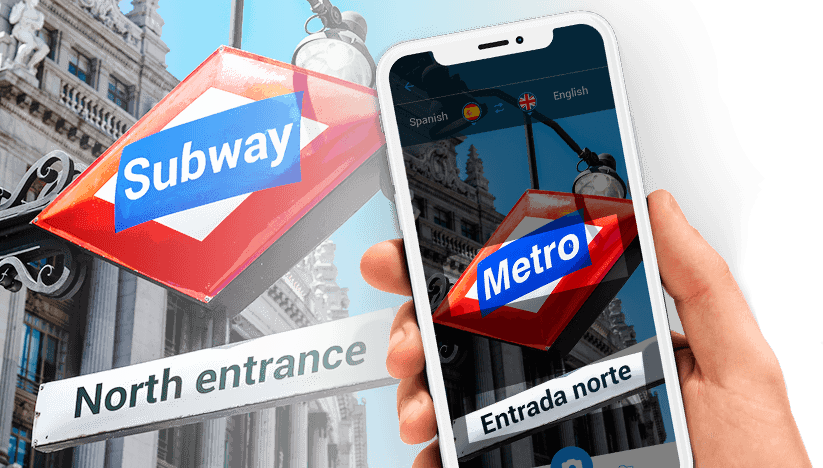
Did you know that learning English can be the key to your future? The decision to learn a new language can come from many different places. Some see it as a way to make the most of their free time during the week. Others enroll in language classes to enhance their resumes and improve their employment prospects. Some need to learn English for a specific trip or relocation to another country. And many simply choose to learn English without a particular reason — just because they want to. All of these motives are completely valid.
But for many, as we’ll see in the second episode of Talkao’s Podcasts, learning English goes much further. This decision doesn’t just transform their lives — it opens the doors to a better present and, of course, a better future. Today, we’ll explore how learning English can improve your personal experiences. It can become a turning point in your life. Are you ready? Let’s learn more about advanced neural translation and language recognition technology.
Learning English (or any other language) changes and shapes your thinking
It doesn’t matter much whether you choose to learn a widely used language, like English, Spanish, or French, or a less popular or regional dialect. Whenever we learn a new language, our mind undergoes a transformation. We’re not just changing the way we express ourselves — we’re reshaping our thinking processes.
And there’s a scientific explanation for this, with strong roots in cognitive science. More specifically, in communication as a process that goes far beyond simply adding sounds to words. From a neuroscience perspective, this is called advanced neural translation.
But before we go into the technical details of language recognition technology, we need to understand a few key points. The first is the relationship between learning English and your brain — or, more precisely, your thinking process. Let’s take a look.
The brain’s gym: Learning english
We say “learning English”—but we could just as well say French, Yoruba, or even Old Latin. It doesn’t matter which language you choose. As many say, it’s not the destination — it’s the journey. From the perspective of brain transformation, the language itself is less important. Why? Because whether you become fluent or not, the process involves a monumental mental workout — a challenge that strengthens and improves your brain’s functionality.
Unlike your biceps or pectorals, the brain doesn’t grow by hardening — instead, it strengthens by increasing its plasticity. Yes — it might seem paradoxical, but that’s pure science.
The brain is a hyper-complex organ. It performs numerous tasks and sets goals just like other body components. However, it’s the brain that is responsible for coordinating all vital functions. At the same time, it handles the most sophisticated process in the animal kingdom: thinking and communicating.
Communication as the ultimate evolutionary process
For the brain, communicating involves performing multiple functions at once. It’s not just about processing and understanding words in their oral or written form. We also need to search our memory banks and match hundreds or even thousands of words. Furthermore, we must generate a response — and this response needs to be tailored to the context, the recipient, the medium, and the possible reactions from our interlocutor — all while we coordinate the movement of our lips, the vibration of our vocal cords, our breathing, and much more.
This shows us that the brain must be flexible. This flexibility lets it grow, adapt, and respond to each new action, thought, or movement. However, we haven’t gotten to the most impressive part yet. All this happens in milliseconds — without interrupting the rest of your body’s functions. And even more… This process happens in your own native language! So just imagine what occurs when you learn English or another language. This is precisely why learning a new language is one of the greatest challenges for your brain.
When you learn a language, your brain is reprogrammed
From the moment we are born until adulthood, one of the most complex actions we learn is communication. This ability is so sophisticated and challenging that we practice it from our earliest months of life. We start by simply crying to express our most basic needs, but as our needs grow, our ability to communicate evolves — turning cries into words, then into advanced sentence structures.
This natural and evolutionary process must start from zero if you want to learn English or another language. Your brain must “forget” what it already knows and reprogram itself to learn from scratch. However, there’s a significant advantage to starting a new language: you’ve done it before — your subconscious already knows the method. This is why, although it may seem challenging at first, everything gradually becomes easier as you progress.
Additionally, if you choose to learn English through an immersive experience, your brain will adapt much faster — you’ll make greater progress in comparison to only attending classes a few hours a week. In conclusion, practice makes everything easier.

The best tip for learning English? Relax!
Does it sound contradictory to you? Telling you to relax in order to learn better? And no — before you think we mean slacking off, that’s not the case. When we talk about relaxation in the process of learning English, we’re referring to allowing yourself to enjoy the process. Still confused? Let’s see why advanced neural translation is more effective when there’s less pressure.
It all comes down to a natural feature of your brain: its ongoing search for pleasure. Our brain has evolved in many ways, but it still retains its most primitive side — the one scientists call the reptilian brain. No, it’s not about aliens; instead, it’s the part of the brain that connects us to our earliest ancestors. Let’s break it down in more detail.
The Brain: A “pleasure junkie”
You’ve probably noticed that preschool and elementary classes are more playful than academic. Young children go to school to play and enjoy their time. Is this a form of learning? The answer is absolutely yes! And it’s the best way to learn. Why? Because our brain absorbs information much more effectively when it’s relaxed.
In this context, relaxation and fun trigger the production of a series of “happiness hormones” — a combination of chemicals that ease, stimulate, and produce a rush of pleasure in the brain. Just like a “junkie” hooked on a high, the brain seeks to recreate that feeling over and over, without ever becoming saturated.
Therefore, the more relaxation you provide for your brain, the more effective your learning process will be. At a certain point, your brain will associate learning English (or another language) with pleasure — allowing you to reach the highest level of advanced neural translation.

How to relax and learn English at the same time?
We’ve already seen that relaxing and having fun makes learning English easier and more effective. However, for many people, learning is synonymous with overexertion and heavy discipline. The two aren’t necessarily conflicting — you can learn grammar, pronunciation, and vocabulary in a fun and stress-free environment. How? Check out these tips you’ll learn more about in the second episode of Talkao’s Podcasts:
Get passionate about English
Do you know why the English we learn at school is forgotten so quickly? The answer is simple: it’s mandatory. So the brain only retains the minimum — just enough to pass exams — and then lets it fade away afterwards.
The brain, as a defense mechanism, tends to forget whatever it’s forced to learn. In contrast, you probably remember many seemingly trivial details from your childhood. This happens due to the strong imprint made by enjoyable and positive memories.
In other words, if learning English feels forced, tiring, or a chore, it’s much more likely you’ll forget it. But if you’re passionate and engaged in the process, the results will be much more visible — and much faster.
Change your environment to English
We’ve mentioned this before, and we highlight it again in episode two of Talkao’s Podcasts. When everything around you switches to the language you want to learn, your brain enters “survival mode” — turning English into a top priority.
This might seem to conflict with the previous point, but it’s not. The key is the context: there’s a big difference between being forced to learn English and needing to learn it to communicate or get by in your daily life. When you’re motivated by necessity or passion, your brain focuses much more.
Scientists have shown that the brain learns a new language much faster when it’s a matter of survival or a real need. So if learning English is crucial for your daily routines, your brain will prioritize it. How can you do this? Here are some of the most effective strategies:
Get familiar with the language — Even if you don’t fully understand it
Forcing your brain to understand a new language is key to triggering its “survival mode”. When you’re constantly surrounded by it, your memory and communication processes accelerate.
One of the most powerful methods is total immersion — moving to a country where the language is predominantly English — or participating in immersion programs where the majority of your day is in English.
This isn’t always a realistic option due to financial, logistical, or other limitations. So, what can you do instead? Here are a few tips you’ll learn more about in Talkao’s Podcasts:
- Change your phone’s settings to English.
- Set up your TV and computer’s language to English.
- Watch movies in English (with subtitles if needed).
- Listen to English songs.
- Try to speak and interact with native speakers.
- Follow social media accounts in English.
All of these strategies will help you become more familiar with the language and aid your advanced neural translation process. Another (and one of the best) options is adapting to language recognition technology. Let’s see how.
Talkao’s AI translation tools: Essential for learning English fast and easily
Language recognition technology has come a long way in recent years — and Talkao’s apps are clear proof of that. These tools translate accurately, naturally, and adaptively across all formats. You can translate text, voice, and multimedia content, including video and images.
Just by downloading these apps on your phone, you’ll speed up your English-learning process with ease. You don’t need a state-of-the-art phone to make the most of these tools. You’ll be able to translate conversations and audio in real time — and even listen to yourself in English to improve your pronunciation.
Additionally, you can translate texts, documents, books, or any piece of writing into English or more than 125 other languages. And with Talkao’s camera translator, you can translate without needing to transcribe — even when the text is in a different alphabet or integrated into an image.
Lastly, you can translate streaming videos with complete accuracy and without missing a thing. However, our greatest recommendation is to subscribe to Talkao’s channel and follow all its Podcasts and classes. There, you’ll find the best tips and strategies to learn English faster and more effectively.










Newsletter